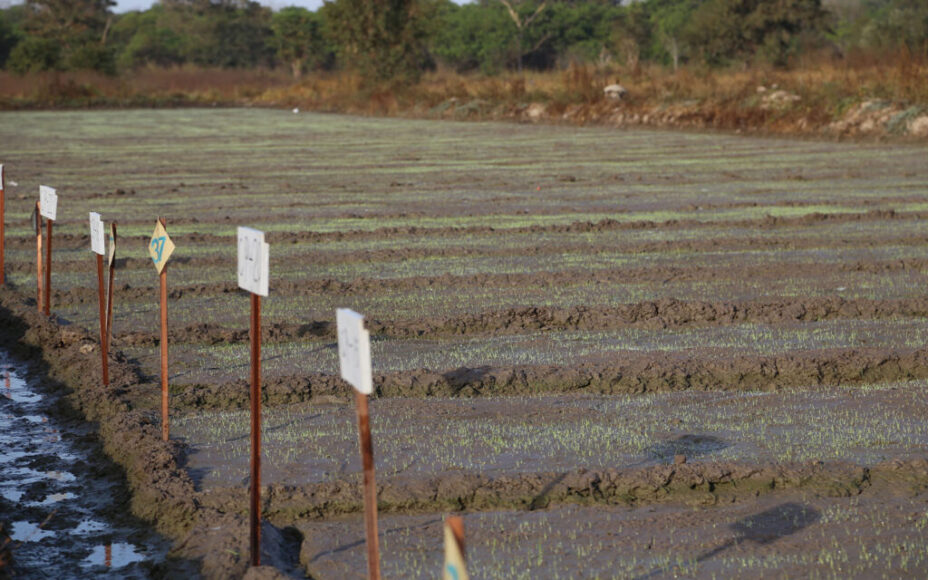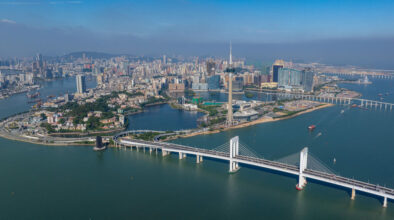In the coastal waters of Guinea-Bissau, a Portuguese-speaking West African nation of just over 2 million people, Chinese fishing vessels have long been a familiar sight. This coming May marks the 40th anniversary since the state-owned China National Fisheries Corporation (CNFC) launched its first vessel into Guinea-Bissau’s fish, lobster, crab and octopus-rich sea. The inauguration came just over a decade after the two countries established formal diplomatic relations in 1974.
A sliver of land between Senegal and Guinea, Guinea-Bissau boasts abundant aquatic life, fertile agricultural land and a strategic location along the Atlantic coast. Yet, it remains one of the world’s poorest nations, with a per capita gross domestic product of just over US$950 in 2023, according to World Bank Data. Partnering with China through its Belt and Road Initiative (BRI) and the Forum for Economic and Trade Co-operation between China and Portuguese-speaking Countries (known as Forum Macao) represents a lifeline of investment and development assistance.
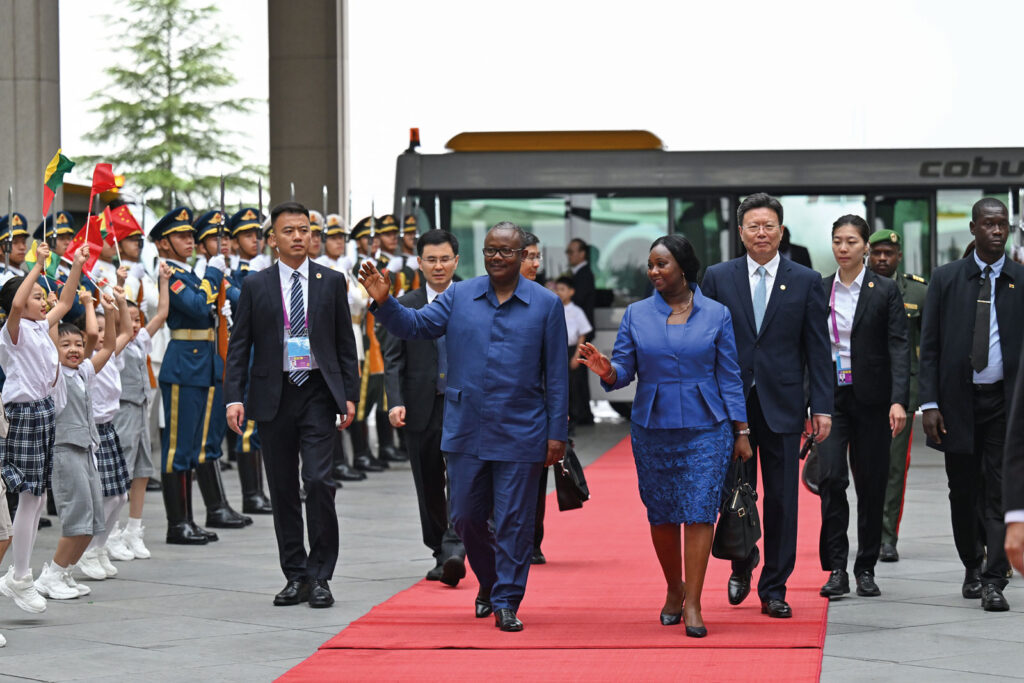
Last July, President Xi Jinping and Guinea-Bissau’s president, Umaro Sissoco Embaló, unanimously decided to upgrade their bilateral relations to a strategic partnership – signalling Guinea-Bissau’s growing importance to Beijing’s ambitions in West Africa and the Portuguese-speaking world. The leaders reaffirmed their countries’ deepening ties, strengthened political trust and growing cooperation during a state visit by Embaló to Beijing.
‘Solid and cordial’ relations
During the visit, Xi emphasised China’s support for Guinea-Bissau in independently pursuing a development path suited to its national conditions. He also underscored Beijing’s readiness to strengthen friendly exchanges with Guinea-Bissau at all levels.
The president praised the high-quality agricultural imports China received from the West African country and said he encouraged Chinese enterprises to invest in Guinea-Bissau to help it “translate its resource potential into development momentum”. He added that China would continue to send its rice experts and medical teams to assist Guinea-Bissau in ensuring food security and improving public health. Government scholarships and training initiatives would also continue to help Guinea-Bissau cultivate more talents in various fields.
Embaló, in turn, expressed gratitude for “the sincere friendship of the Chinese people towards their African brothers”. He noted that China was his country’s most important international partner, and described the two countries’ relationship as “solid and cordial”.
“The people of Guinea-Bissau will never forget that whenever Guinea-Bissau was in difficulty, China always provided invaluable assistance without hesitation,” Embaló said. The president also conveyed his respect for Beijing’s stance on international relations: “[China] has always treated small countries as equals and with respect, and honoured its words with actions,” he said.
Alongside the announcement of the strategic partnership, Embaló’s state visit saw the signing of multiple bilateral agreements covering economic development, customs inspection and quarantine, geology, mining and implementation of the Global Development Initiative, among other things.
The two leaders met again last September at the Beijing Summit of the Forum on China-Africa Cooperation (FOCAC), where they reinforced their commitment to expanded collaboration.
Fishing for the future
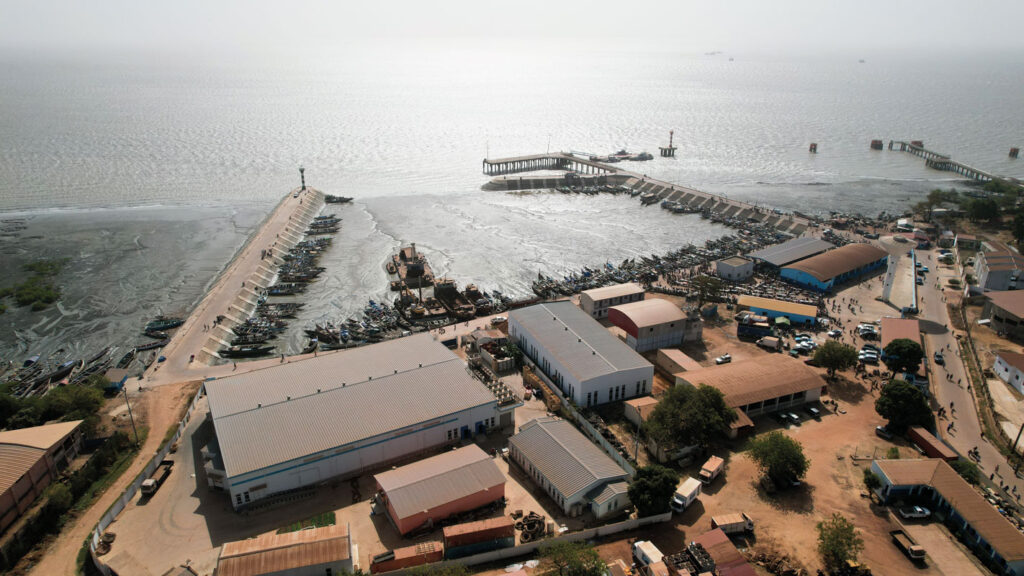
Guinea-Bissau does not have its own deep-sea fishing fleet, making the issuance of fishing licenses to foreign vessels a major source of revenue for the country. CNFC was among the earliest international players operating in its waters, having dispatched its first distant-water fishing fleet to Bissau – the country’s capital and largest port – in May 1985. Back then, the port was largely undeveloped, lacking in essential unloading equipment and transport vehicles. CNFC brought much-needed shipbuilding and fishing supplies across the seas from China, captain Wang Songjie told Xinhua earlier this year, recalling stories of those early arrivals needing to do everything manually. Wang helms a CNFC ship named Yuanyu 883.
These days, CNFC operates 15 bottom trawlers and employs 242 staff members from China, Guinea-Bissau and abroad, Xinhua reported. The company is committed to training local crews and introducing modern fishing techniques while investing in the country’s fisheries infrastructure. Xinhua also spoke with local CNFC staffer Issumaila Djalo, who said that China was enabling the country’s marine resources to benefit its people.
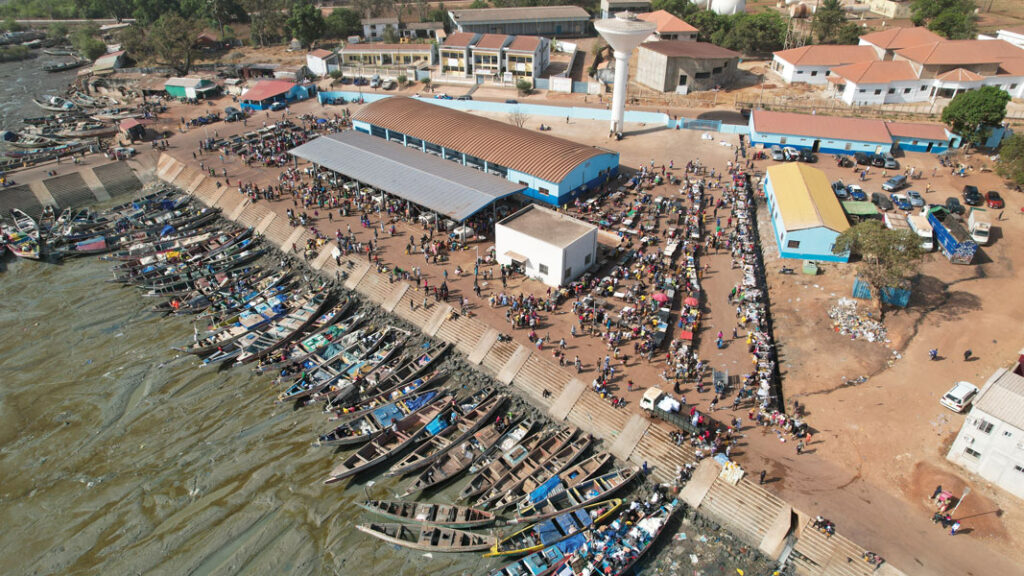
In May 2023, the China-aided Alto do Bandim Fishing Port was inaugurated, followed by CNFC’s completion of a 4,000-square-metre seafood processing and storage facility – the largest plant of its kind in Guinea-Bissau. The plant supplies locals with affordable seafood. In March 2024, Prime Minister Rui Duarte de Barros visited the plant to present CNFC’s local office with an ‘Honorary Certificate for Cooperation and Development’ on behalf of the government. “The fisheries cooperation between CNFC and us is a model of economic and trade cooperation between our two countries and should serve as an example for all of Guinea-Bissau’s partners,” Barros told media at the time.
Improving rice yields more than three-fold
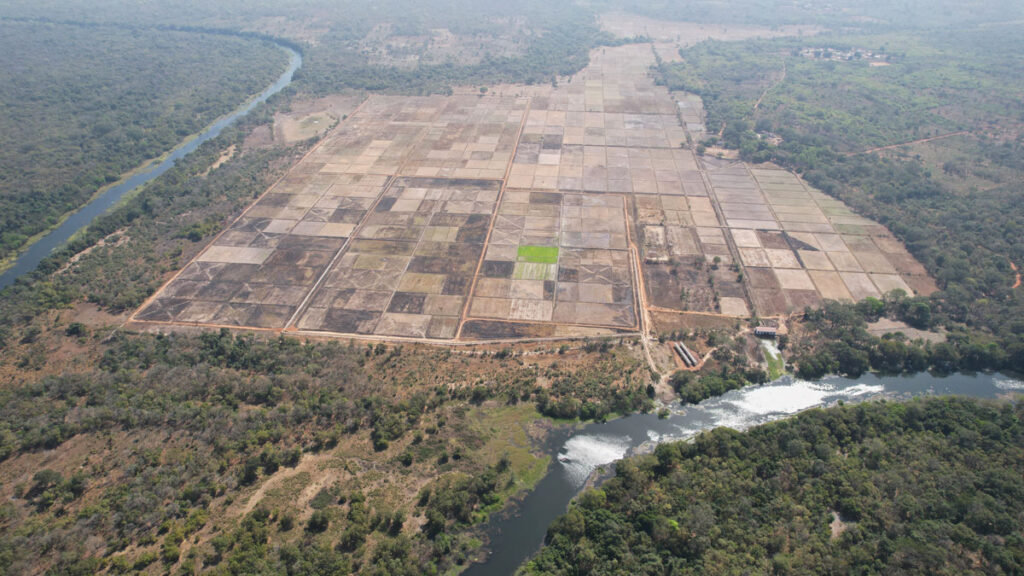
Agriculture is another key area of cooperation between China and Guinea-Bissau, particularly regarding the latter’s rice production. According to the Coalition for African Rice Development (CARD), the country produces less than 40 percent of the rice it consumes, with demand for the staple cereal only increasing due to rapid population growth, urbanisation and shifting dietary preferences.
China established an Agricultural Technical Assistance Mission in Guinea-Bissau’s Bafatá area in 1998, dispatching hundreds of experts to introduce high-yield rice varieties, demonstrate modern cultivation techniques, conduct training sessions and provide mechanical assistance. Lush Bafatá has long been known as the ‘rice granary’ of Guinea-Bissau, due to the influence of its meandering Geba River, and China’s presence has helped elevate the region into something of a hub for farming innovation.
Speaking to Xinhua in July last year, Zheng Junjie, head of the current team stationed in Guinea-Bissau, said the initiative had introduced 37 rice varieties in the country. Zheng noted that rice yields in three regions, including Bafatá, had increased from 1.4 tonnes per hectare to 4.9 tonnes thanks to the mission’s efforts, and said its demonstration area had achieved as much as 10 tonnes per hectare. The total area under rice cultivation had also expanded from 60,000 hectares to 100,000 hectares.
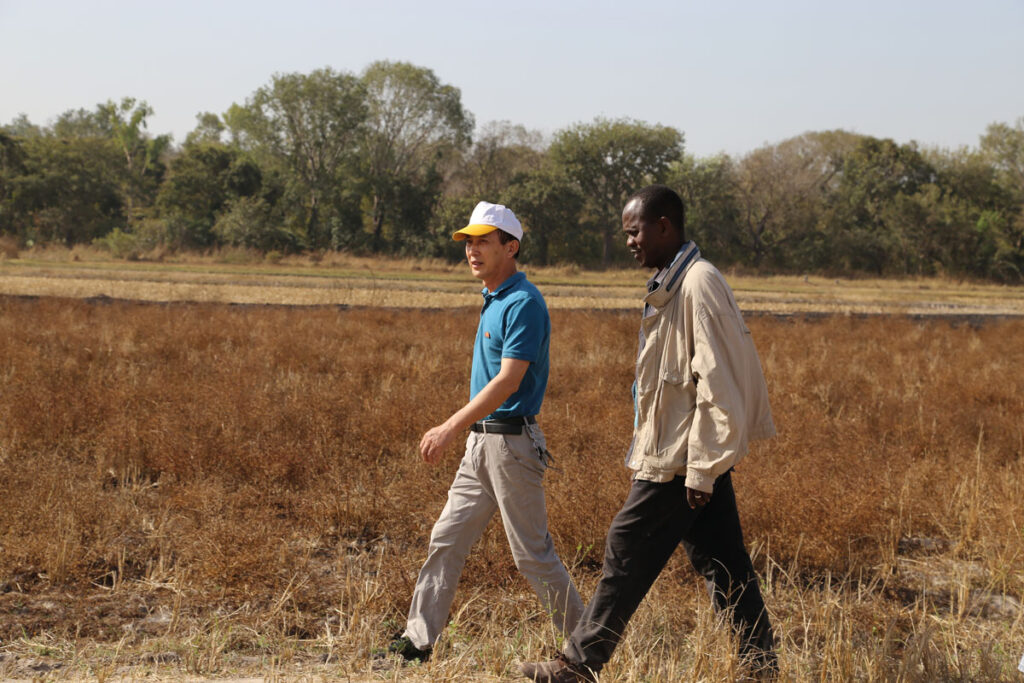
The head of Guinea-Bissau’s Rice Association, Antonio Tavares, earned his masters degree in agronomy from a university in China. He spent nine years in the country learning from top agronomists like the rice hybrid pioneer Yuan Longping. Tavares credits his education with shaping his advocacy for strengthening agricultural ties with China, and he believes the results speak for themselves. “China’s agricultural cooperation introduced advanced technology and high-quality rice strains, markedly improving local farmers’ living standards,” he told Xinhua in July.
The dedication of Chinese agricultural experts was evident earlier this year when members of the 12th Chinese Agricultural Technical Assistance Team worked through their Chinese New Year preparations to plant the dry season’s crop. Xinhua reporters witnessed this process, describing the team’s unique festive period in Bafatá – where they welcomed local visitors into their homes to share in the celebrations and phoned family members back in Hubei Province. Village chief Queba Santos Seidi spoke with the reporters, saying that it was thanks to the Chinese agronomists’ efforts that “even our remote village can now cultivate high-quality rice.”
Cooperation that touches every citizen
China’s assistance in Guinea-Bissau is far-reaching and holistic, according to Minister of Social Communication Florentino Fernando Dias. Speaking to Xinhua in January, he noted that “any Bissau-Guinean citizen can see the investments China is making in various fields in the country.” Dias pointed to a major highway project financed by China as well as extensive renovations to government buildings, including parliament and the once-derelict presidential palace.
Media is one emerging area of cooperation between the countries. Dias has said that Guinea-Bissau was counting on China to help its national television and radio stations transition from analog to digital, while the director general of Guinea-Bissau National Television, Amadu Djamanca, told Xinhua he hoped to see his country’s media capacity strengthen through content-sharing and personnel training. Djamanca said he aimed to establish long-term partnerships with Chinese media outlets to help Guinea-Bissau showcase its culture and stories on a bigger stage, particularly with Chinese audiences. He said he appreciated the way China already provided African media outlets with opportunities to share their narratives.
Djamanca visited China himself in 2024 and described his time there as inspirational. “[It reinforced] my belief that Guinea-Bissau has the full potential to achieve prosperity, and China’s experience provides valuable lessons for us,” he said.
